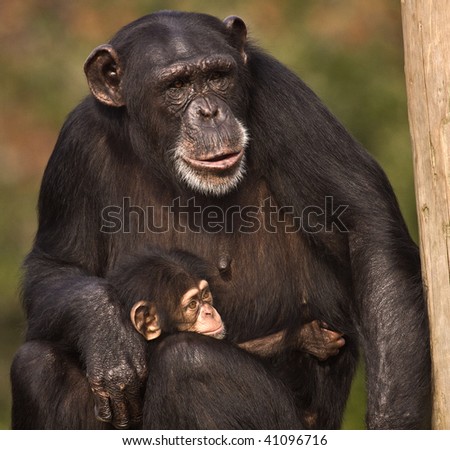Birds are juvenile dinosaurs?
Posted: Sat Jun 02, 2012 10:32 am
It has long been common wisdom that birds are descended from dinosaurs. But it could be that birds are dinosaurs with an arrested development - they are forever youthful.
 Before trying to explain what that means, let's consider a related subject - an increasingly youthful mouse. Paleontologist and evolutionary scientist Stephen J. Gould noted that as Mickey Mouse aged from his creation in 1929, his appearance became ever more youthful. Read about it here.
Before trying to explain what that means, let's consider a related subject - an increasingly youthful mouse. Paleontologist and evolutionary scientist Stephen J. Gould noted that as Mickey Mouse aged from his creation in 1929, his appearance became ever more youthful. Read about it here.
In mammals, a youthful appearance includes a rounded head, large eyes and a relatively non-protruding nose, mouth and chin. As mammals age, their heads get lower, their eyes proportionally smaller and the lower half of their faces more protruding.
 As you can see in this picture of an adult chimpanzee and its baby, the adult has a less rounded head, proportionally smaller eyes and a larger chin and a larger "lower half of face". The juvenile chimpanzee has a rounded head, larger eyes and a smaller "lower half of the face".
As you can see in this picture of an adult chimpanzee and its baby, the adult has a less rounded head, proportionally smaller eyes and a larger chin and a larger "lower half of face". The juvenile chimpanzee has a rounded head, larger eyes and a smaller "lower half of the face".
Mickey Mouse, however, has almost the same head form and facial proportions as his nephews.
Modern humans, too, have juvenile traits. We have comparatively rounded heads and comparatively non-protruding mouths and chins. The picture shows two of our distant ancestors, Australopithecus afarensis and Homo habilis and Homo Habilis. The source, http://blog.oup.com/2007/12/human/, describes both these human ancestors as "upright apes", with ape-like faces.
Even though we should be careful about boasting about our fantastic human intelligence, it is clear that the average human outperforms the average simian when it comes to cognitive abilities. We are a bit smarter than the apes. We can also be described as youthful apes, who have retained the youthful rounded baby head even as we grew to adulthood, and perhaps partly because of that, we could grow our brains larger and become more intelligent.
Back to the birds. Many birds are surprisingly smart. Bird also typically have rounded heads, large eyes and short beaks. Because of their rounded heads, they have comparatively large brains.
In a recent article in Nature, Bhart-Anjan Bhullar et al. claim that birds are what they are because they have retained the juvenile traits of the dinosaurs. I haven't tried to access the article in Nature since I'm not a subscriber, but you can read about it here.
Personally I find it enormously interesting that the dinosaurs became extinct, but their "youthful" descendants, the birds, are very very successful. And while most apes are doing very badly, we, the "youthful" species of the Homo family, are doing very well indeed.
Ann

In mammals, a youthful appearance includes a rounded head, large eyes and a relatively non-protruding nose, mouth and chin. As mammals age, their heads get lower, their eyes proportionally smaller and the lower half of their faces more protruding.

Mickey Mouse, however, has almost the same head form and facial proportions as his nephews.
Modern humans, too, have juvenile traits. We have comparatively rounded heads and comparatively non-protruding mouths and chins. The picture shows two of our distant ancestors, Australopithecus afarensis and Homo habilis and Homo Habilis. The source, http://blog.oup.com/2007/12/human/, describes both these human ancestors as "upright apes", with ape-like faces.
Even though we should be careful about boasting about our fantastic human intelligence, it is clear that the average human outperforms the average simian when it comes to cognitive abilities. We are a bit smarter than the apes. We can also be described as youthful apes, who have retained the youthful rounded baby head even as we grew to adulthood, and perhaps partly because of that, we could grow our brains larger and become more intelligent.
Back to the birds. Many birds are surprisingly smart. Bird also typically have rounded heads, large eyes and short beaks. Because of their rounded heads, they have comparatively large brains.
In a recent article in Nature, Bhart-Anjan Bhullar et al. claim that birds are what they are because they have retained the juvenile traits of the dinosaurs. I haven't tried to access the article in Nature since I'm not a subscriber, but you can read about it here.
Personally I find it enormously interesting that the dinosaurs became extinct, but their "youthful" descendants, the birds, are very very successful. And while most apes are doing very badly, we, the "youthful" species of the Homo family, are doing very well indeed.
Ann



